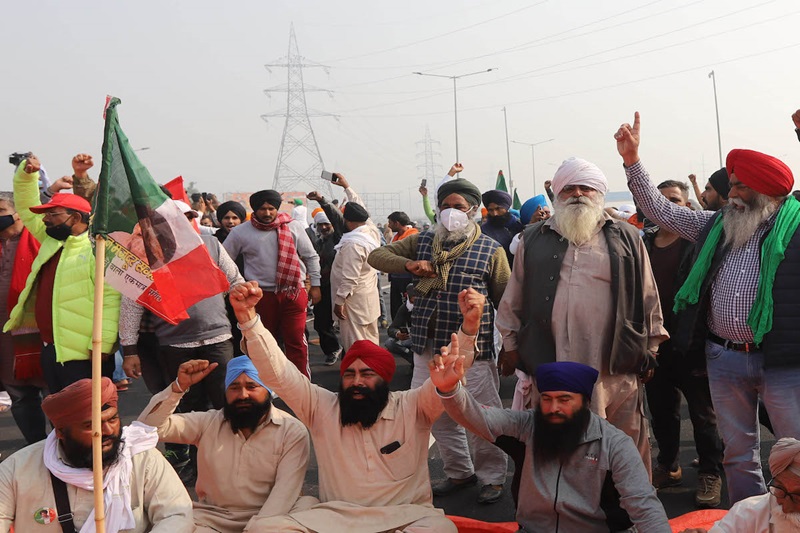
india farmer protest
On Wednesday, farmers from various unions who were upset marched towards New Delhi, which prompted the Delhi Police to increase border security. The arrangement of police and paramilitary staff, alongside the foundation of numerous layers of blockades, was intended to close the national capital’s boundaries at Singhu, Tikri, and Ghazipur. In focal Delhi, a hearty security plan saw staff clad in enemy mob gear decisively positioned, while metal and substantial obstructions controlled admission to key streets.
Prudent steps by Delhi Metro
Fully expecting interruptions brought about by the farmers’ protest, the Delhi Metro went to prudent lengths on Tuesday. The traveler section and exit at nine stations were controlled, and certain doors briefly shut for a few hours. This proactive methodology highlighted the effect of the protest on open transportation and the need to guarantee traveler security.
Reaction and Strategies of Delhi Police
Following bombed discussions with the public authority, police used tear gas to dissuade a large number of fighting farmers from progressing towards New Delhi. Nerve gas mists scattered demonstrators at the Shambhu Line close to Ambala, around 200 kilometers north of the capital. Furthermore, creative strategies, for example, utilizing robots to set nerve gas canisters free from the air, exhibited flexibility of the police in overseeing huge-scale fights.
Province of Caution in Punjab
Punjab was placed on high alert, and approximately 70% of the state police were instructed to remain on active duty, despite not actively preventing farmers from moving towards Delhi. This uplifted condition of alarm mirrored the meaning of the farmers’ protest and the potential for its acceleration.
Demanding Justice for Lakhimpur Kheri
The Farmers’ Protest is organized around a set of demands that they want the government to take care of. They had advocated for legislation to guarantee a minimum support price (MSP) in 2021 when they agreed to end their protest against the now-repealed farm laws. Among these demands is legislation to guarantee an MSP. They also want the recommendations made by the Swaminathan Commission to be implemented, as well as farm debt forgiveness, pensions for farmers and agricultural workers, and justice for those who were hurt in the Lakhimpur Kheri violence.







